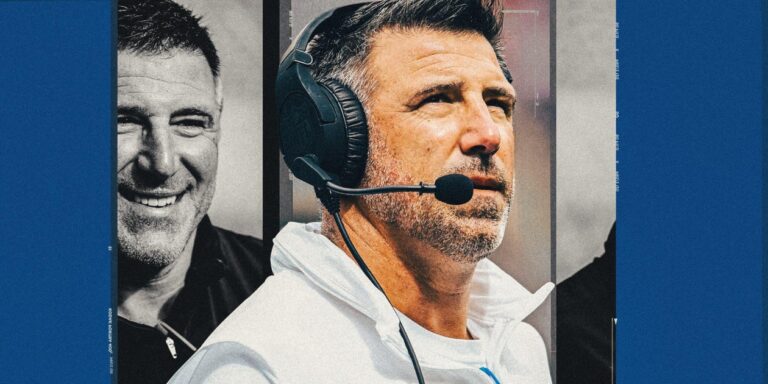Here is the result in plain text:
As January transfer window signings go, a 78-year-old American track and field coach is unconventional. For Manchester United and Ruben Amorim, even if it wasn’t the head coach’s call, it actually makes a lot of sense. The appointment of Harry Marra, on a consultancy basis for a few weeks, is designed to improve United individually and collectively at covering ground efficiently and repeatedly.
Marra, who graduated from Syracuse University in 1974 with a master’s degree in physical education and exercise science, is best known for coaching USA decathlete Ashton Eaton to gold at the Olympics (London 2012, Rio 2016) and World Championships (Moscow 2013, Beijing in 2015, where he also got the world record, since beaten). Eaton still holds the world decathlon best over 400 metres (45.00 seconds), and in the top 25 decathlon performances of all time, his 10.23s 100m ranks second.
Marra’s relationship with Eaton dated back to the early 2010s when they worked together at the University of Oregon, where Marra also coached Brianne Theisen to NCAA titles and collegiate records. As a heptathlete, she went on to win an Olympic bronze (Rio 2016) and world silvers (Moscow 2013, Beijing 2015).
Marra also spent over 10 years working simultaneously with the San Francisco Giants baseball team and as USA Track & Field’s decathlon coach.
In 2018, Marra coached Indonesian sprinter Lalu Muhammad Zohri to gold at the World Athletics U20 Championships. With a personal best down to 10.03, Zohri is on the cusp of becoming only the 11th Asian man to break the 10-second barrier in the 100m.
What’s this got to do with Manchester United? Quite a lot. It’s a sign of Marra’s coaching quality that, over 40 years he has had success with teams, groups and individuals of varying ages, backgrounds, starting levels and resources. If the critique is that his age makes him out of touch, consider the open-mindedness and adaptability he has needed to work with top athletes and teams for longer than Amorim has been alive.
More importantly, running more and better is something Amorim wants United to do. “If you want to win the Premier League, you have to run like mad dogs,” he said in December, before a 3-2 defeat against Nottingham Forest, his fifth match in charge. “If not, we are not going to do it (win), that is clear. It’s impossible to win the Premier League without a team that, every moment, runs back, runs forward. Even with the best starting XI, without running, they will not win anything.”
The sports science-led revolution of the late 2000s catalysed a transformation of the Premier League into Europe’s most athletic league, and it’s still increasing in intensity. One study of Premier League games between 2006 and 2013 showed 30 and 35 per cent increases in high-intensity and sprint distances. Another paper found rises of 12 and 15 per cent in the same metrics from 2014-15 to 2018-19. Data from SkillCorner shows the rise has continued. This season, high-intensity distance match averages are 16 per cent up on the 2018-19 campaign. Sprint frequencies have risen by a fifth and sprint distance over 23 per cent.
“ It was not me, it was the club,” said Amorim of the appointment of Marra. “We are always trying to bring experienced people to share knowledge with the staff, to understand the body, to understand how you can improve our players. It was not me, it was not something new. He’s not there to coach the team, he’s there to coach the staff about everything about the running, et cetera. It’s a simple thing that we are used to doing to improve as a club.”
Amorim wanting to build a team on intensity and physicality is not new. Tottenham Hotspur, Liverpool and Bournemouth all had or have identities underpinned by their ability to run.
Sprinting coaches are not new within football. Former Team GB sprinter Darren Campbell worked at MK Dons and with Andriy Shevchenko when he was at Chelsea. Similarly, Leon Reid, another former international sprinter, has worked on the running technique of Brighton players. Three NFL sides — the Jacksonville Jaguars, Tennessee Titans and Houston Texans — have all employed ‘directors of speed development’, though there is a more natural fit for a mechanics/sprinting coach there, given the NFL’s combine and 40-yard dash.
The Premier League is into its era of specialist coaches: hybrid coach-analysts, set-piece coaches and position-specific coaches. The return on investment of a coach who can keep players fitter (and possibly make them move better) has the potential to be huge.
Internally, Amorim has been critical of fitness levels, and United’s high-intensity numbers have dropped off compared to last season.
Running more (and harder) is not automatically a good thing, and requires the context of tactics, game state, opposition style and quality, but as Dodoo points out, “the manager’s model is real high intensity, and the players need to be conditioned for that. If you get conditioned to that way of training with one manager, the next manager bringing a more intensive model (means) the conditioning of the team needs to go up”.
It is not quite the same approach that Ten Hag took when he had his players running many kilometres after an away defeat to Brentford in August 2023 (to show them how much they were ‘outran’ by). Availability, though, is the best ability, and United must improve there if they are to implement the style Amorim wants, let alone turn their season around.
Source link




